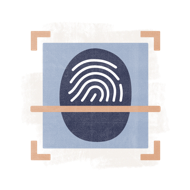News of a massive data breach of one of the three major consumer credit reporting agencies, Equifax, has many individuals wondering if they should “freeze” their credit reports to protect themselves from identity theft. If you are wondering the same thing, here’s a guide to credit freezes that can help you make that decision.
What Is a Credit Freeze?
A credit report freeze (or “security alert”) is designed to protect your credit data so it is less likely to be accessed by an identity thief. When you place a freeze with one or more of the major consumer credit reporting agencies, you will get a Personal Identification Number (PIN) or password. If someone (including you) applies for credit or other services that involve a credit check, you will have to provide permission for them to review it by “unlocking” your data or “lifting” the freeze. You’ll do that by providing verification of your identity and your PIN or password.
You can place a freeze directly with the three major consumer credit reporting agencies. There may be a charge for this service, depending on your state’s laws. You should still be able to monitor your own credit reports with a freeze in place, and your existing creditors won’t be affected.
- Place a credit freeze with Equifax here.
- Place a credit freeze with Experian here.
- Place a credit freeze with TransUnion here.
Fraud Alert vs. Credit Freeze: What’s the Difference?
A fraud alert is another option. It will alert creditors who request your credit data that your information may have been compromised. They will be instructed to contact you using the contact information you’ve provided to verify your identity before they approve new credit applications.
You can place an initial fraud alert on your credit reports for free by contacting one of the three major credit reporting agencies: Equifax, Experian or TransUnion. When you place the alert they should notify the other two agencies for you. You can place an initial 90-day alert for any reason, but to extend it you will need to provide documentation that you are a victim of identity theft and supply additional supporting documentation such as a police report, you can extend that alert. (Members of the military can place an active duty alert for one year for free and extend it longer if still deployed.)
Neither a freeze nor a fraud alert is 100% foolproof. Equifax, for example, recently upgraded its security freeze PINs due to concerns the automatically generated ones were not secure enough.
What Are the Downsides?
Fraud alerts and credit freezes only deter thieves from transactions using your credit data. It won’t stop a crook from compromising and then draining your bank account, for example, and will not likely stop taxpayer identity theft or medical identity theft.
In many states, unless you are a victim of identity theft (not just a data breach), you may have to pay to place a security freeze on your credit report and to lift it. At $5 – $10 a pop, this cost can add up. Keep in mind that you may need to unfreeze your credit reports to get utility service, a new cell phone, auto insurance or other transactions that involve a credit check. Sometimes it can be difficult to know which credit reporting agency a particular company will use, and therefore, which report you need to unfreeze. Equifax is offering consumers a free security freeze for one year.
What Are Some Alternatives?
If you are not sure freezing your credit is worth the cost or hassle, you may choose to monitor your credit closely for suspicious activity such as new accounts or inquiries you don’t recognize. There are more than 150 places you can check your credit scores for free, though Nav is the only one that lets you monitor your business credit profile as well as your personal credit. (You can sign up for a free Nav account here.)
You may want to also double check to make sure you have identity theft insurance, which can provide assistance if you are a victim of identity theft. Benefits vary, but often these policies may also provide monetary benefits such as reimbursement for legal fees, lost wages for time taken off work and direct expenses related to resolving your case.
Also, it’s a good idea to set up alerts for your credit cards, debit cards and bank accounts so you will be notified of unusual activities. Given the breadth of information compromised in the Equifax data breach, it may be possible for scammers to pose as you and get access to various accounts. It’s wise to be cautious and act proactively.
What Would You Do?
I recently became a victim of identity theft — yes, even credit experts can become victims! — and have had my data compromised in a variety of breaches in the past. I chose to place a fraud alert rather than a freeze and so far it’s worked well for me. When I tried to get a car loan recently, for example, the financing company was thorough in establishing that I was the one trying to get the loan and not a scammer. Ultimately, however, you’ll have to decide which option works best for your lifestyle. At a minimum, plan to monitor your credit and financial accounts; as this breach illustrates, you never know what may happen to your information.
This article was originally written on September 12, 2017 and updated on October 18, 2017.



Beware, Equifax has had a problem for many years with double charging customers when they lift their freeze from their website. Trying to get those double charges removed is not easy. I now go directly to my credit card company to have them removed because trying to work with Equifax is next to impossible. I have had a credit freeze for about 8 years and only have a problem with Equifax when temporarily lifting the freeze. This is another problem with Equifax which should also have a class action lawsuit. Can you imagine all the duplicate charges that don’t get caught by customers? It’s likely in the millions of dollars. With this much extra revenue, why would Equifax want to fix this problem?
Good info, Gerri